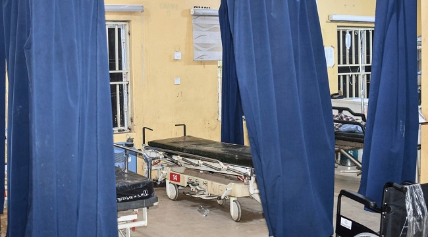Peller Is Not an Illiterate: Jarvis Defends Ex-Boyfriend, Explains His Education
Nigerian TikTok creator Amadou Elizabeth Aminata, popularly known as Jarvis, has spoken out to defend her ex-boyfriend and fellow streamer, Hamzat Habeeb Adelaja, aka Peller, amid claims that he is uneducated. During a recent livestream, Jarvis clarified that Peller is not an illiterate, stressing that he completed his secondary school education and holds a WAEC certificate. She explained that although he did not attend university, this was due to financial challenges, a reality many young Nigerians face. Jarvis also shared her own educational struggles, noting that she was only able to complete university after receiving support when she gained fame. Despite their breakup in December 2025, she said Peller’s lack of higher education should not be mistaken for illiteracy, highlighting that success and intelligence are not defined solely by university degrees.
#NigerianCelebrities,
#TikTokGists,
#EntertainmentNewsPeller Is Not an Illiterate: Jarvis Defends Ex-Boyfriend, Explains His Education
Nigerian TikTok creator Amadou Elizabeth Aminata, popularly known as Jarvis, has spoken out to defend her ex-boyfriend and fellow streamer, Hamzat Habeeb Adelaja, aka Peller, amid claims that he is uneducated. During a recent livestream, Jarvis clarified that Peller is not an illiterate, stressing that he completed his secondary school education and holds a WAEC certificate. She explained that although he did not attend university, this was due to financial challenges, a reality many young Nigerians face. Jarvis also shared her own educational struggles, noting that she was only able to complete university after receiving support when she gained fame. Despite their breakup in December 2025, she said Peller’s lack of higher education should not be mistaken for illiteracy, highlighting that success and intelligence are not defined solely by university degrees.
#NigerianCelebrities, #TikTokGists, #EntertainmentNews




















